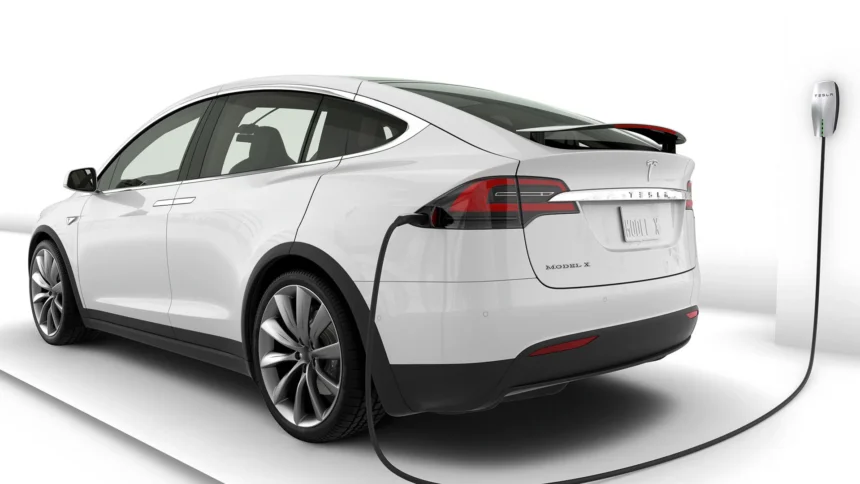Electric cars have surged into the spotlight as a viable and eco-friendly alternative to traditional gasoline-powered vehicles. With increasing concerns about climate change, fuel efficiency, and advancements in technology, many drivers are considering making the switch.
This comprehensive guide will delve into everything you need to know about electric cars, from how they work to their benefits and drawbacks, and what the future holds for this transformative technology.
How Electric Cars Work
Electric cars, or electric vehicles (EVs), are powered entirely by electricity. Unlike internal combustion engine (ICE) vehicles that rely on gasoline or diesel, EVs use electric motors and batteries to propel the car.
Electric Motor
The heart of an electric car is its electric motor. This motor converts electrical energy from the battery into mechanical energy to drive the wheels. Electric motors are known for their efficiency and can deliver instant torque, which translates into smooth and quick acceleration.
Battery
The battery pack in an electric car stores electrical energy. Most modern EVs use lithium-ion batteries due to their high energy density and long lifespan. These batteries are rechargeable and are typically charged through an external power source, such as a home charging station or public charging network.
Charging
Charging an electric car involves plugging it into a charging station. There are three main types of charging: Level 1 (standard home outlet), Level 2 (240-volt outlet), and DC Fast Charging. The charging time varies based on the type of charger and the battery capacity.
Benefits of Electric Cars

Electric cars offer several advantages over their gasoline-powered counterparts. Here are some key benefits:
1. Environmental Impact
One of the most significant benefits of electric cars is their reduced environmental impact. EVs produce zero tailpipe emissions, which helps to reduce air pollution and greenhouse gas emissions. This is particularly important in urban areas where air quality can be a major concern.
2. Cost Savings
Electric cars can be more cost-effective in the long run. Although the initial purchase price might be higher, the cost of electricity is generally lower than gasoline. Additionally, EVs have fewer moving parts compared to ICE vehicles, which can lead to lower maintenance and repair costs.
3. Performance
Electric vehicles are known for their impressive performance. They offer smooth acceleration, quiet operation, and a more responsive driving experience. Many electric cars also have a low center of gravity due to their battery placement, which can enhance handling and stability.
4. Incentives and Rebates
Many governments and local authorities offer incentives and rebates for electric car buyers. These can include tax credits, reduced registration fees, and access to carpool lanes. These incentives can help offset the initial cost of purchasing an EV.
Drawbacks of Electric Cars
While electric cars have numerous benefits, they also come with some challenges:
1. Limited Range
One of the main concerns for potential EV owners is the range of electric cars. Although the range has been steadily improving, it can still be a limitation for some drivers. Range anxiety, or the fear of running out of battery power, is a real concern for many.
2. Charging Infrastructure
The availability of charging stations can vary depending on location. In some areas, especially rural regions, charging infrastructure may be limited. However, the network of charging stations is expanding, and advancements in technology are addressing this issue.
3. Charging Time
Compared to refueling a gasoline car, charging an electric vehicle can take longer. While home charging is convenient, it can be time-consuming. Fast-charging stations are available but may not be as widespread as conventional gas stations.
4. Initial Cost
The upfront cost of electric cars can be higher than that of traditional vehicles. However, this cost is often offset by lower operating and maintenance expenses over time. Additionally, the price of EVs is gradually decreasing as technology advances and production scales up.
The Future of Electric Cars

The future of electric cars looks promising, with ongoing advancements and innovations in technology. Here are some trends and developments to watch for:
1. Increased Range
Manufacturers are continuously working to improve battery technology, which will lead to longer ranges and shorter charging times. Solid-state batteries, for example, are an emerging technology that promises higher energy density and faster charging.
2. Expansion of Charging Infrastructure
As the adoption of electric vehicles grows, so does the expansion of charging infrastructure. More charging stations are being installed in urban areas, highways, and even at workplaces. This increased accessibility will help alleviate range anxiety and make EV ownership more convenient.
3. Integration with Renewable Energy
Electric cars have the potential to be integrated with renewable energy sources, such as solar and wind power. Some companies are exploring ways to use EVs as energy storage solutions, which can help balance supply and demand in the grid.
4. Autonomous Driving
The development of autonomous driving technology is closely linked with electric vehicles. Many electric car manufacturers are also investing in self-driving technology, which could revolutionize the way we travel and reduce the need for personal car ownership.
Electric Cars
Electric cars are reshaping the automotive industry and offering a sustainable alternative to traditional vehicles. With their environmental benefits, cost savings, and impressive performance, they present a compelling option for many drivers.
While there are still some challenges to overcome, the future of electric cars looks bright with continued advancements in technology and infrastructure.
Whether you’re considering making the switch or simply curious about the latest developments, understanding the ins and outs of electric cars will help you make informed decisions about your transportation options.
